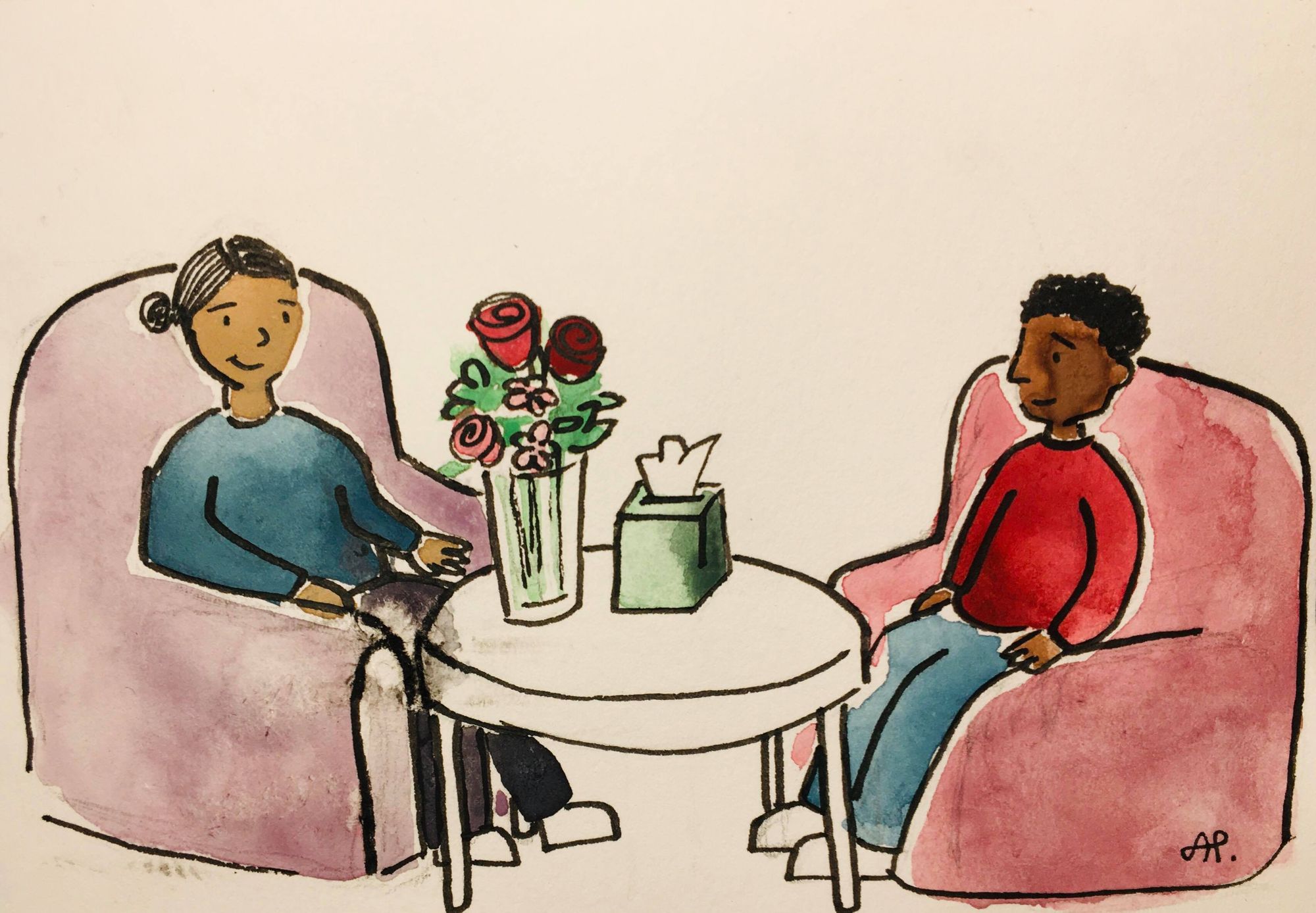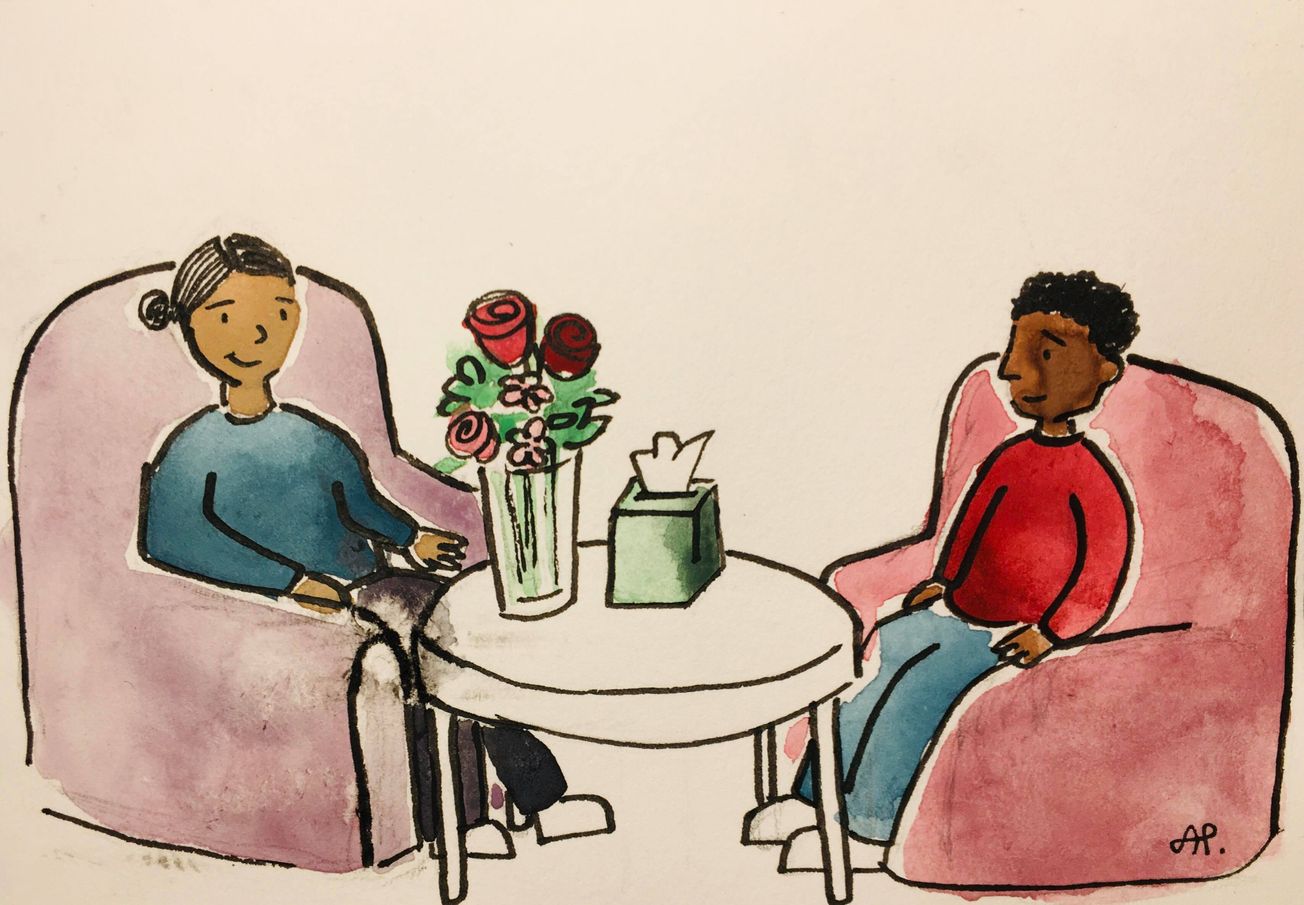by Sanjana Idnani, Wellbeing Sub-Editor
The Croft// Sanjana Idnani speaks with Jean Smith: the director of Bristol-based and BAME-led charity – Nilaari – on the need for the culturally appropriate therapies that they provide and how these services have adapted to the additional challenges of COVID-19.
As we learn and celebrate this Black History Month, I talked to Jean Smith, the director of Nilaari. Nilaari is a Bristol-based and BAME lead charity that has been providing culturally appropriate therapeutic services for individuals of Black and Minority Ethnic backgrounds for twenty-one years.
Introducing Nilaari, Jean mentioned that the name means ‘to have self-worth and value’, which perfectly encompasses the vision that the charity has. Starting as a drug and alcohol service that used to deliver drug awareness sessions in schools and other organisations, Nilaari set out a new vision to tackle the roots of the drug and alcohol problems they were treating.

Individuals in BAME communities were being overrepresented in secondary mental health care (hospitalisations and being sectioned) and in the criminal justice system. However, in the therapeutic, primary care sector, Jean says: ‘we were almost invisible and everyone at Nilaari was passionate about changing this around.’ Nilaari was able to give the individuals who used their services the dignity to work through their mental health together with an expert who could support them.
Jean emphasised that what makes Nilaari uniquely valuable to BAME communities who try out and use their services is that it consists of ‘a diverse team that delivers culturally appropriate treatment.’ This opportunity to open up to someone who understands your culture and how this relates to your wellbeing can be really reassuring for individuals who may have their reservations towards therapy.
Another tenet of Nilaari’s work is reforming and working with the criminal justice system. Jean gave me a bit more insight into the work they do with individuals who have a previous history of offending behaviour. After years of delivering services, Nilaari were quick to note that many of these individuals saw life as a ‘revolving door’ between prison and probation and this was primarily because the probationary interventions weren’t engaging with the problems that had led to this cycle.
This opportunity to open up to someone who understands your culture and how this relates to your wellbeing can be really reassuring for individuals who may have their reservations towards therapy
Jean talked in particular about the work that Nilaari was doing with BAME males in this area: ‘We know we need to work a lot longer with these individuals and that if we can build up this relationship and get individuals to learn about how the mind works, anger-management, and how relationships work and can be, we can then break the cycle.’
However, some challenges come with this work too; ‘probation services find their partners through a commissioning process and they tend to go to the very big players.’ The problem with this is that ‘the large providers tend to do things the way they’ve always done things.’
This work has been further hindered by Covid-19 which has come with its own set of challenges for Nilaari. As with many of our day-to-day activities, Nilaari started delivering services remotely but of course, building a relationship can be much harder on a virtual platform. Jean emphasised how it often felt like you would have to work ‘doubly hard’ to establish the same connection you would be able to form in person.

Virtual delivery has also impacted students with many finding ‘being at home a challenge for 1-1 sessions as it wasn’t as safe a space.’ Despite these challenges, Nilaari has been an essential mental health service provider during the pandemic with ‘the increase in individuals making contact being off the Richter scale.’
Nilaari also provided tailored responses to those feeling triggered and affected by the disgusting instances of police brutality we have seen this year.
Nilaari has been an essential mental health service provider during the pandemic with ‘the increase in individuals making contact being off the Richter scale’
As we discussed the impact of the pandemic on wellbeing, our conversation shifted to the role that institutions play in safeguarding mental health and providing mental health services that BAME people can trust. Notably, one of the main concerns that came up was that individuals felt uncomfortable about talking to internal wellbeing services at work. Many were concerned it would get out that they were struggling to cope and potentially put their job on the line.
In light of this, I asked Jean what her advice would be to institutions looking to improve their wellbeing provisions for Black and Minority Ethnic individuals and her answer was unequivocal: ‘it is absolutely essential that institutions, whether they be Bristol City Council, to the universities, to schools, that there is a culturally appropriate alternative available but also that staff and students can trust that what is said will remain confidential and will not be looked down on.’
This Black History Month, let's celebrate Black joy
Spotlight on Nilaari: The charity offering culturally appropriate counselling services to the Bristol BAME community
Nilaari already helps some institutions to create this space through their partnerships with the University of Bristol and UWE wellbeing services.
From helping an international student settle into a new city and pointing out where they can find little snippets of home to being able to relate treatment to relevant cultural norms, the support that Nilaari provides these students is invaluable. They can be seen, heard, and defined on their own terms, truly affirming their self-worth and value.
PenGals, a group of women of colour, have collaborated with Nilaari in an event today to promote safe wellbeing spaces for Women of Colour. If you would like to listen to the talk by Nilaari, it will be posted on their Facebook page!
Featured image: Epigram / Alice Proctor









